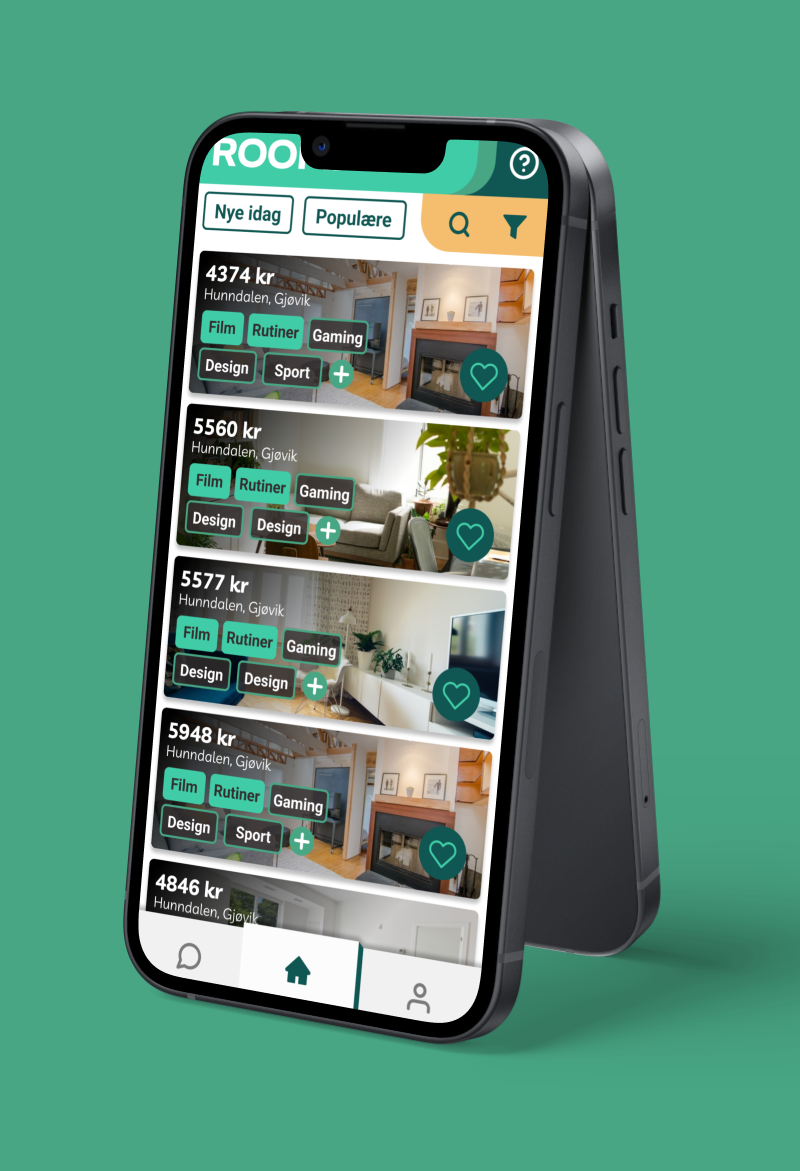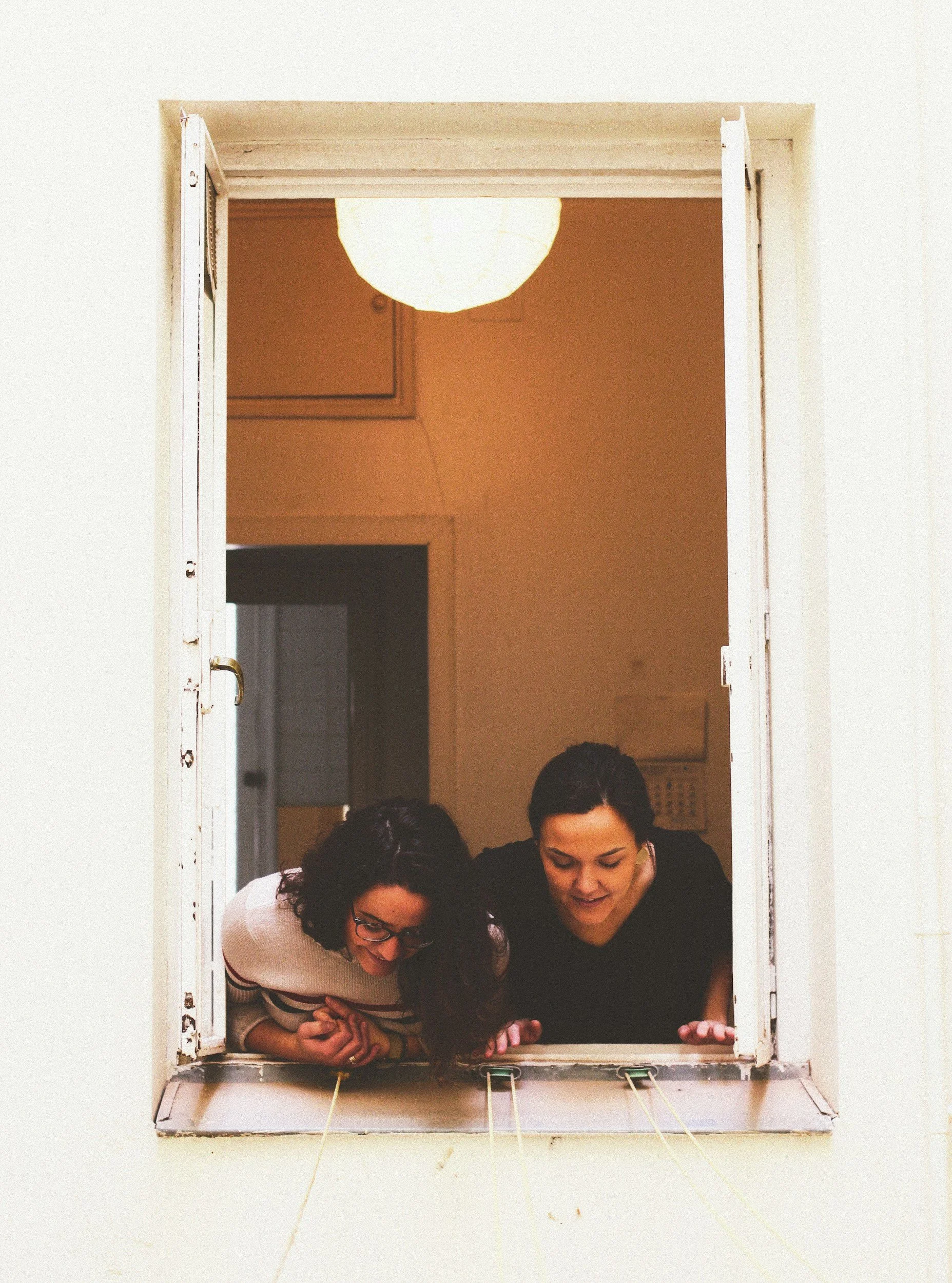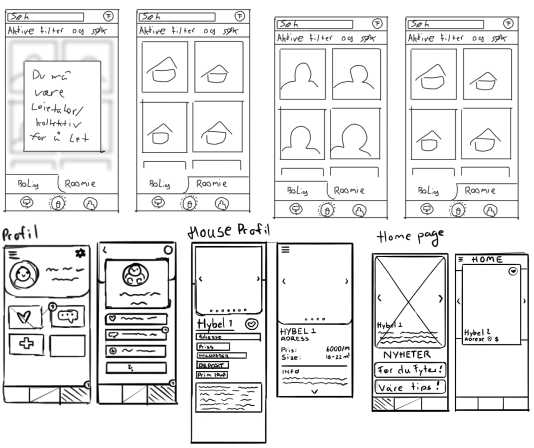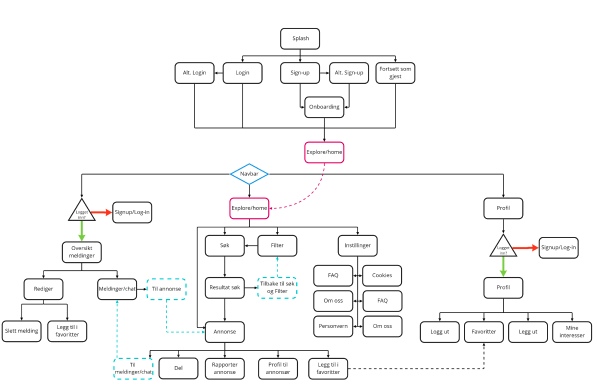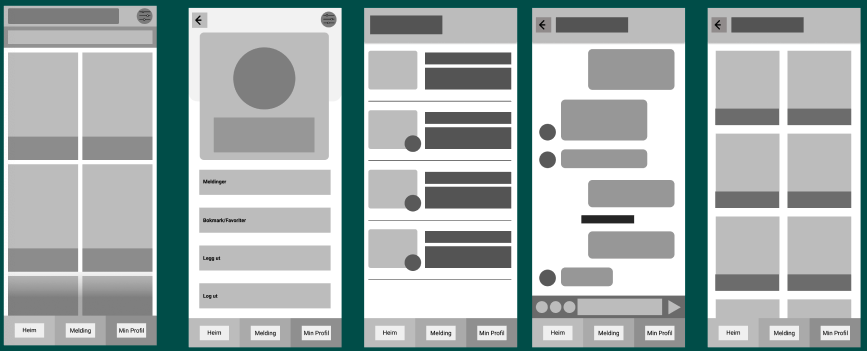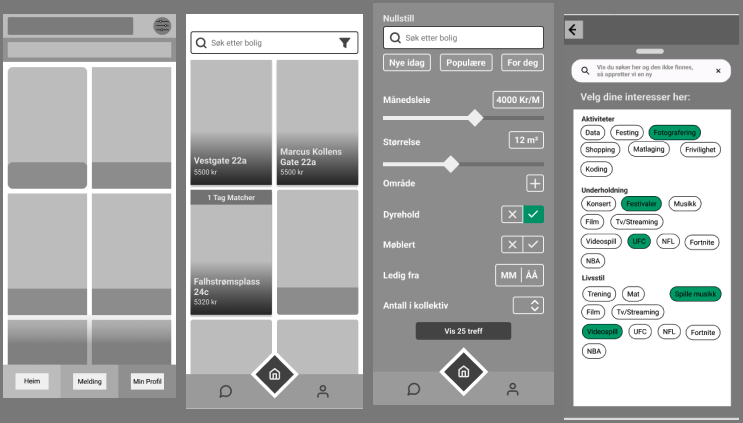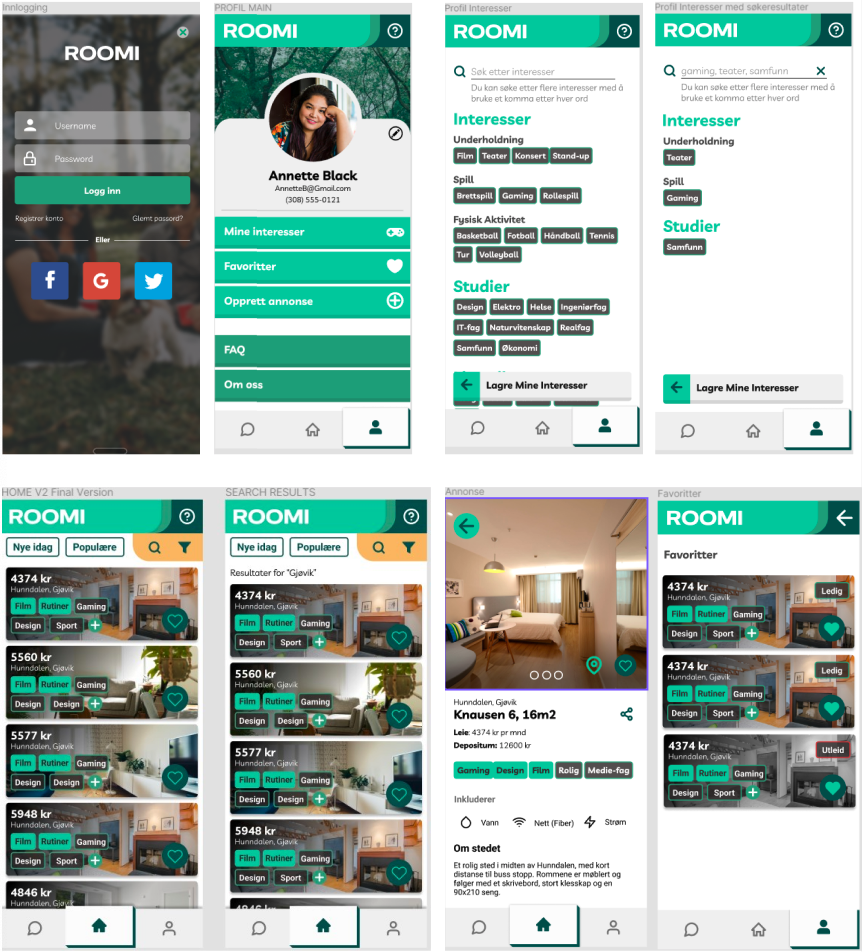Spring 2022
School project
roomi
Find a compatible roommate who matches your lifestyle and preferences to improve your living experience.
Roomi is a platform designed to help students in Gjøvik find compatible roommates who match their lifestyle and preferences, ultimately improving their living experience.
This project was undertaken as part of the course IDG2200 - Design og prototyping for digitale produkter at NTNU, where we selected the case "Perfect Roomie" due to its relevance to current housing challenges faced by students in Gjøvik.
Challenge
Millennial and Zoomer students in Gjøvik struggle to find suitable shared living spaces and compatible roommates due to a lack of detailed information on living environments and potential housemates. Existing platforms fail to provide relevant insights, leaving students uncertain and requiring extensive research.
Goals
Develop a tailored platform for Gjøvik's Millennial and Zoomer students to discover ideal shared living spaces based on preferences and budget.
Present comprehensive details on shared living environments, including room count, common areas, amenities, and universal inclusivity.
Purpose
The project aims to support students by easing their transition into shared living spaces. By offering a platform that prioritizes their specific needs, Roomi helps users find well-suited roommates, leading to harmonious co-living experiences.
Target Audience: Zoomers, Millenials (generations)
Gains: Affordable options, diverse locations, social benefits, detailed roommate profiles.
Pains: Extensive research required, lack of relevant information, uncertainty about potential roommates.
Needs: Find a suitable place, get to know future roommates, easily replace roommates when necessary.
Timeline: 3 months
Project structure
Our approach followed a user-centered design process, starting with research and iterating through multiple design stages:
Phase 1 - Discover
We conducted a research phase consisting of:
Surveys & Interviews: We interviewed six NTNU Gjøvik students to gather qualitative insights into their needs when searching for shared housing.
Key Findings:
Users prioritized price, location, and living space details.
Many were concerned about social compatibility and safety when moving in with new roommates.
Users struggled with insufficient information about potential roommates' lifestyles and habits.
Pain Points:
Anxiety about moving in with strangers.
Lack of clarity about shared space conditions.
Difficulty ensuring a good social fit.
Phase 2 - Define
From our research, we identified core pain points and refined our value proposition
Solution Approach:
Provide extensive living space details.
Implement account matching based on interests and habits.
Ensure user safety and privacy.
Phase 4 - Deliver
Testing was conducted by recruiting new students at NTNU who recently experienced the moving process. While the design of the actual application was not yet developed and there was no planned release, testers engaged with a mock-up of the app created using Figma mirror. This approach provided them with a simulated experience, allowing for valuable feedback despite the absence of a finalised product.
Through user testing, we received positive feedback on:
Matchmaking Accuracy: Users appreciated the interest-based roommate filtering.
Ease of Use: The intuitive interface facilitated smooth navigation and roommate discovery.
Comprehensive Listings: Providing in-depth room details reduced uncertainty.
Future improvements could include:
AI-driven roommate compatibility scores.
Integration with student housing platforms.
Expanded user base beyond NTNU students.
Phase 3 - Design
We developed initial wireframes and prototypes, iterating based on feedback.
Interest Tags: Users can add tags reflecting hobbies and preferences to find like-minded roommates.
Profile Transparency: Users can view roommates' lifestyle details before applying.
Privacy Features: Ensuring that personal information remains secure while enabling effective connections.
Design & Deliver
